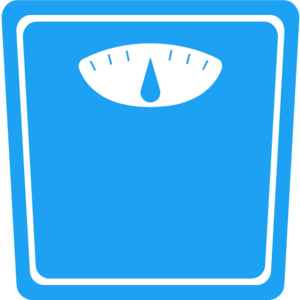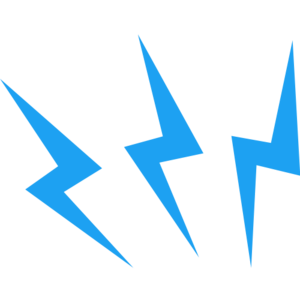HYPNOSIS RESEARCH
Backed by Science
Studies show that hypnosis can be a valuable tool for enhancing well-being and addressing various physical and emotional challenges.
Nicotine Cessation
Hypnotherapy is highly effective for nicotine cessation. Various studies and meta-analyses have found hypnosis to be significantly more effective than other methods like nicotine replacement therapies. Studies confirm that an individualized, three-session program increases your chances of long-term success. At the end of treatment, 81% reported they had stopped smoking, 48% reported abstinence after 12 months, and 95% reported they were satisfied with the treatment.
Source: (1) Viswesvaran and Schmidt, "A Meta-analytic Comparison of the Effectiveness of Smoking Cessation Methods." (2) Hasan FM, Zagarins SE, Pischke KM, Saiyed S, Bettencourt AM, Beal L, Macys D, Aurora S, McCleary N., "Hypnotherapy is more effective than nicotine replacement therapy for smoking cessation: results of a randomized controlled trial." (3) Elkins and Rajab, "Clinical Hypnosis for Smoking Cessation."
Weight Loss Support
Studies show that adding hypnotherapy to your weight loss program can double your weight loss and help maintain weight loss longer. In a 2022 study, researchers showed that hypnosis can lead to significant reductions in caloric intake and weight loss in patients with obesity. Another study tracked the effects of hypnosis in a clinical weight loss program. After 10 weeks, the results showed that BMI and leptin levels (a hormone associated with obesity) decreased significantly, whereas irisin and adiponectin levels (a hormone your body needs to protect you against obesity and type 2 diabetes) increased significantly.
Source: (1) Evelyn Greaves, G. Tidy, R.A.S. Christie, "Hypnotherapy as an Adjunct to the Dietetic Management of Obese Patients." (2) Irving Kirsch, "Hypnotic Enhancement of Cognitive-Behavioral Weight Loss Treatments: Another Meta-Reanalysis." (3) Erşan S, Erşan EE, "Effects of Hypnotherapy on Weight Loss and thus on Serum Leptin, Adiponectin, and Irisin Levels in Obese Patients." (4) Fabienne Delestre, Guillaume Lehéricey, Candice Estellat, M Hassimiou Diallo, Boris Hansel, Philippe Giral, "Hypnosis reduces food impulsivity in patients with obesity and high levels of disinhibition."
Reduce Anxious Feelings
Hypnosis has proven to be highly effective at reducing anxiety. Researchers at the University of Hartford in Connecticut analyzed 15 studies (incorporating 17 trials) where hypnosis was used for anxiety reduction. The findings showed a 79% reduction in symptoms. The study also showed an 84% reduction in anxiety symptoms in 7 of the trials. This analysis suggests that hypnosis may be more effective than standard interventions for anxiety.
Source: (1) Keara E. Valentine, Leonard S. Milling, Lauren J. Clark & Caitlin L. Moriarty, "The Efficacy of Hypnosis as a Treatment for Anxiety: A Meta-Analysis."
Improve Your Mood
Hypnosis can be a helpful tool for people dealing with depression or looking to improve their mood. Studies show that hypnosis can help create a more positive outlook, lessen feelings of hopelessness, and give individuals a sense of control over their lives. Studies find that those who receive hypnosis show more reduction in depression than about 76% of those who received other treatments, concluding "hypnosis is a very effective way of alleviating the symptoms of depression."
Relieve Chronic Pain
Studies confirm that hypnosis is highly effective at reducing pain in individuals with chronic pain and drastically reduces severe pain. After receiving a single 15-minute session, patients reported immediate reductions in pain similar to what one might expect from an opioid painkiller. Patients also reported a significant decrease in the perceived need for medication. In 2021, researchers completed the first comprehensive meta-analysis of the use of hypnosis for relieving clinical pain. The results showed that the average participant receiving hypnosis reduced pain by more than about 73% of control participants.
Source: (1) Eric L. Garland, Anne K. Baker, Paula Larsen, Michael R. Riquino, Sarah E. Priddy, Elizabeth Thomas, Adam W. Hanley, Patricia Galbraith, Nathan Wanner, Yoshio Nakamura, "Randomized Controlled Trial of Brief Mindfulness Training and Hypnotic Suggestion for Acute Pain Relief in the Hospital Setting." (2) Leonard S. Milling, Keara E. Valentine, Lindsey M. LoStimolo, Alyssa M. Nett & Hannah S. McCarley (2021) "Hypnosis and the Alleviation of Clinical Pain: A Comprehensive Meta-Analysis, International Journal of Clinical and Experimental Hypnosis."
Better Sleep
Hypnosis has shown to be a safe, side-effect-free way to improve troubled sleep. In a study measuring brain wave activity, researchers found that hypnosis boosts not only deep sleep quantity but also improves deep sleep quality. Study participants slept 67% more and saw their deep sleep time rise by roughly 80% after hypnosis. A 2022 study found that hypnosis significantly enhances slow-wave sleep, which is the deepest stage of sleep. It increases hormone secretion and profoundly affects the two major systems linking the brain with peripheral body functions: the endocrine and the autonomic nervous systems.
IBS Symptom Relief
People with GI problems (irritable bowel, inflammatory bowel, ulcerative colitis, dyspepsia, Crohn's) often find relief through hypnosis. Studies show that gut-directed hypnotherapy helps reduce abdominal pain, bloating, bowel dysfunction, and improves quality of life. On average, 75% experience significant relief, and 80% continue to feel better for up to 6 years. Hypnosis is now considered a primary intervention recommended by the American Gastroenterological Association.
Source: (1) Whorwell PJ; Prior A; Faragher EB., "Controlled trial of hypnotherapy in the treatment of severe refractory irritable bowel syndrome." (2) Palsson OS, Turner MJ, Johnson DA, Burnett CK, Whitehead WE., "Hypnosis treatment for severe irritable bowel syndrome: investigation of mechanism and effects on symptoms." (3) Megan E. Riehl, "The Emerging Role of Brain-Gut Therapies for Irritable Bowel Syndrome." (4) Syed S. Hasan, Peter J. Whorwell, Vivien Miller, Julie Morris, Dipesh H. Vasant., "Six vs 12 Sessions of Gut-focused Hypnotherapy for Irritable Bowel Syndrome."
Pre & Post Surgery
Hypnosis offers a non-invasive, non-pharmaceutical way to tap into the mind's natural ability to reduce stress before a medical procedure. In clinical trials, those who received hypnosis reported far less pain and anxiety, suffered fewer complications, and recovered faster than those who received standard care. Patients also had significantly less vomiting, nausea, and less need for painkillers. A report in The American Journal of Medicine concluded, "Hypnosis improves procedural pain and emotional distress and reduces medication up to 40%—in short, if hypnosis were a drug, it would be standard of care."
Source: (1) Flory N, Salazar GM, Lang EV., "Hypnosis for acute distress management during medical procedures." (2) Lang EV, Rosen M., "Cost analysis of adjunct hypnosis for sedation during outpatient interventional procedures." (3) Lang EV, Berbaum K, Faintuch S, Hatsiopoulou O, Halsey N, Li X, Berbaum M, Laser E, Baum J., "Adjunctive self-hypnotic relaxation for outpatient medical procedures: A prospective randomized trial with women undergoing large core needle biopsy of the breast." (4) Kittle Jesse, Spiegel David., "Hypnosis: The Most Effective Treatment You Have Yet to Prescribe." (5) Enqvist B, Björklund C, Engman M, Jakobsson J. Preoperative hypnosis reduces postoperative vomiting after surgery of the breasts. A prospective, randomized and blinded study. Acta Anaesthesiol Scand.
Soothe Skin Issues
Hypnosis has been proven to decrease stress, reduce pain and inflammation, and decrease behaviors such as scratching, itching, and hair-pulling. Hypnosis can affect autonomic and physiological functions, including pain sensation and immune response. It has shown promising results for those who are dealing with skin problems such as acne, psoriasis, eczema, and hives. The most extensively studied skin conditions are psoriasis and warts. A 2005 review by the Mayo Clinic concluded the use of hypnosis in dermatology supports its value for many skin conditions not believed to be under conscious control.
Source: (1) Shenefelt PD., "Hypnosis in dermatology." (2) Perczel, K. and Gál, J., "Hypnotherapy of atopic dermatitis in an adult." (3) Stewart, A. C. & Thomas, S. E., "Hypnotherapy as a treatment for atopic dermatitis in adults and children." (4) Spanos, N. P., Stenstrom, R. J. & Johnston, J. C., "Hypnosis, placebo, and suggestion in the treatment of warts." (5) Stewart, J. H., "Hypnosis in contemporary medicine." Mayo Clinic Proceedings.
Reduce Hot Flashes
Hypnosis has been studied for hot flashes and other menopausal symptoms. A 2013 study found that hypnosis results in significant reductions in self-reported and physiologically measured hot flashes in postmenopausal women. A 2015 report commissioned by the North American Menopause Society concluded that hypnosis significantly reduces hot flashes in frequency and severity. Those who received hypnosis reported a 74% reduction in hot flash frequency and an 80% reduction in hot flash scores. This led researchers to conclude that of all approaches, hypnosis is "uniquely effective" at reducing hot flashes.
Source: (1) Elkins GR, Fisher WI, Johnson AK, et al. "Clinical hypnosis in the treatment of postmenopausal hot flashes: a randomized controlled trial." (2) Nonhormonal management of menopause-associated vasomotor symptoms: 2015 position statement of The North American Menopause Society. (3) Elkins G, Arring N, Morgan G, et al. "Self-Administered Hypnosis vs Sham Hypnosis for Hot Flashes: A Randomized Clinical Trial."
© 2026 Hypnotherapy with Harley Sears, LLC
Hypnosis in Kansas City and Nationwide
Hypnosis in Kansas City and Nationwide










